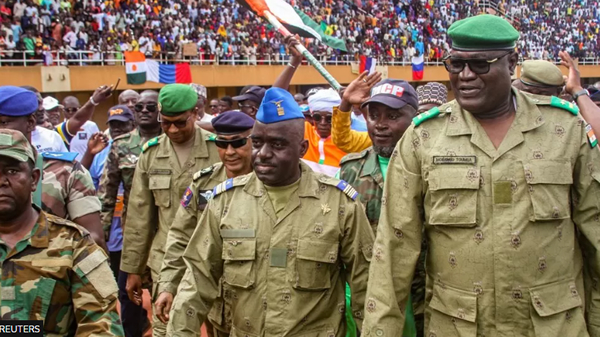
The United States has officially designated the July military takeover in Niger as a coup, a decision that limits U.S. military aid and coordination with a country the Pentagon has called a critical counter-terrorism partner in the region.
“We’re taking this action because over the last two months, we’ve exhausted all available avenues to preserve constitutional order in Niger,” a senior Biden administration official told reporters Tuesday.
The official said that the U.S. urged the military leaders who forcefully removed the president from power to restore a civilian and democratic government within 90-120 days as Niger’s constitution calls for, but the military officials did not abide by those constitutional guidelines.
“In fact, they’ve told us that they’ve chosen to repeal that constitution and are now in the process of creating a new draft with an uncertain timeline,” the official added.
At this point, the U.S. has no indication on when the president might be released by the military coup leaders.
The U.S. embassy can continue to operate, and the U.S. military has so far decided to keep forces in Niger, the administration officials said. However, the U.S. is not conducting any partner missions or training with Nigerien forces, as has been the case since the coup occurred in late July.
About 1,000 U.S. personnel remain stationed in the country as of Wednesday, but it is unclear if or for how long they will remain.
“That’s something that we have not made any decisions about right now,” a second administration official said.
Intelligence, reconnaissance, and surveillance operations via U.S. drones are continuing, with the official saying that those operations are focused on “monitoring for threats to our forces, including threats from violent extremist organizations.”
“Violent extremist organizations can thrive in areas of instability, and coups like the one in Niger just provide more space,” the official added.
Current and former U.S. officials have raised concerns that the limited intelligence, reconnaissance, and surveillance will hurt international efforts to help local security forces fight terrorist organizations. Officials have long considered Niger a hub for counter-terror operations in West Africa, and the U.S. spent millions on a new drone base in Agadez, Niger, which began operations in 2019.
The United States “is barely keeping a lid on this problem, and when you remove that, when you remove all of those enablers that help keep these jihadists from overrunning countries or overrunning regions, then you are giving them an advantage,” said Bill Roggio, a former soldier and editor of the Foundation for Defense of Democracies’ Long War Journal, which publishes reporting and analysis of global counterterrorism efforts.
France began withdrawing its 1,500 troops from Niger last week and ended its cooperation with Niger’s military in response to the coup, according to the French armed forces ministry. The French ambassador left the country last month.
Niger military officers ousted President Mohamed Bazoum on July 26 and placed him under house arrest.
Source: voanews.com























